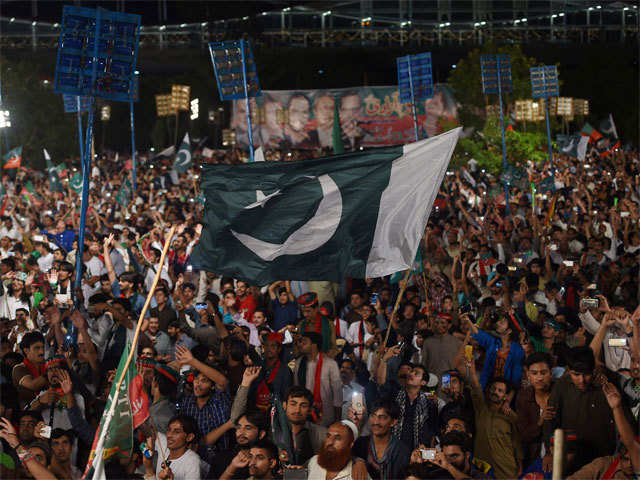Aug 14, 2017, 02.08 PM IST
70th Independence Day
It was on August 14, 1947 that Pakistan was formed as a result of the Pakistan movement led by All India Muslim League aimed at the creation of an independent Muslim country.
Celebrating its 70th Independence Day today, Pakistan has come a long way.
Let's have a look at the Muslim nation's journey.
Celebrating its 70th Independence Day today, Pakistan has come a long way.
Let's have a look at the Muslim nation's journey.
PTI

The two-nation theory
Those who wanted Pakistan believed that Hindus and Muslims are separate nationalities within India.
The fact that they came from similar culture, ethnicity and beliefs did not matter to them.
The theory believed that religion was the only factor that mattered for Muslims.
The fact that they came from similar culture, ethnicity and beliefs did not matter to them.
The theory believed that religion was the only factor that mattered for Muslims.
Reuters

Muslims who left Pakistan for India
Can you imagine Bollywood without iconic stars like King Khan, Dilip Kumar? Well, you need to thank their fathers who decided to shift to India during Partition.
BCCL
Total number of migrants
According to the 1951 census, 7,226,000 Muslims went to Pakistan while 7,249,000 Hindus and Sikhs moved to India after partition.
reuters

Muhammad Ali Jinnah's children
Today's Pakistan of terrorism and Islamic fundamentalism would have been a different country, like Turkey of Ataturk, if Jinnah lived longer.
Died after 13 months of taking charge, Jinnah dreamed of emulating his idol Ataturk who had secularised Turkey.
After his death, Pakistan struggled with political instability and identity crisis.
Died after 13 months of taking charge, Jinnah dreamed of emulating his idol Ataturk who had secularised Turkey.
After his death, Pakistan struggled with political instability and identity crisis.
BCCL

Beginning of the military influence
It was in 1958 that General (later field marshal) Ayub Khan took control of the country. That also marked the beginning of the military rule that went on to shape the country, directly or indirectly, ever after.
BCCL

The era of dictatorship
It was on July 5, 1977 that General Muhammad Zia ul Haq replaced Bhutto government. Zia ruled for 11 years and also introduced Sharia law to gain acceptance from hardcore Islamists.
Not only he supported Mujahideens in Afghanistan but he was responsible for the creation of mullah-military complex–a byword for rabid Islamisation of the state machinery. He is blamed for the rise of terrorism in Pakistan.
Not only he supported Mujahideens in Afghanistan but he was responsible for the creation of mullah-military complex–a byword for rabid Islamisation of the state machinery. He is blamed for the rise of terrorism in Pakistan.

Transition to complete democracy
It was in 2013 that Pakistan for the first time saw the democratic transition of power. Till then, Pakistan had not seen any prime minister completing a full five-year term.
The one who was expected to break this thread was Nawaz Sharif who was recently dismissed by the Pakistan Supreme Court on corruption charges. Pakistan military is supposed to be behind his ouster.
The one who was expected to break this thread was Nawaz Sharif who was recently dismissed by the Pakistan Supreme Court on corruption charges. Pakistan military is supposed to be behind his ouster.
AFP

Celebrating the 70th Independence Day
Celebrating its 70th Independence day, Pakistan has hoisted its tallest flag which is 120x80 feet and installed on a 400-feet pole. It was hoisted by Pakistan Army Chief on Wagah-Attari border.


No comments:
Post a Comment